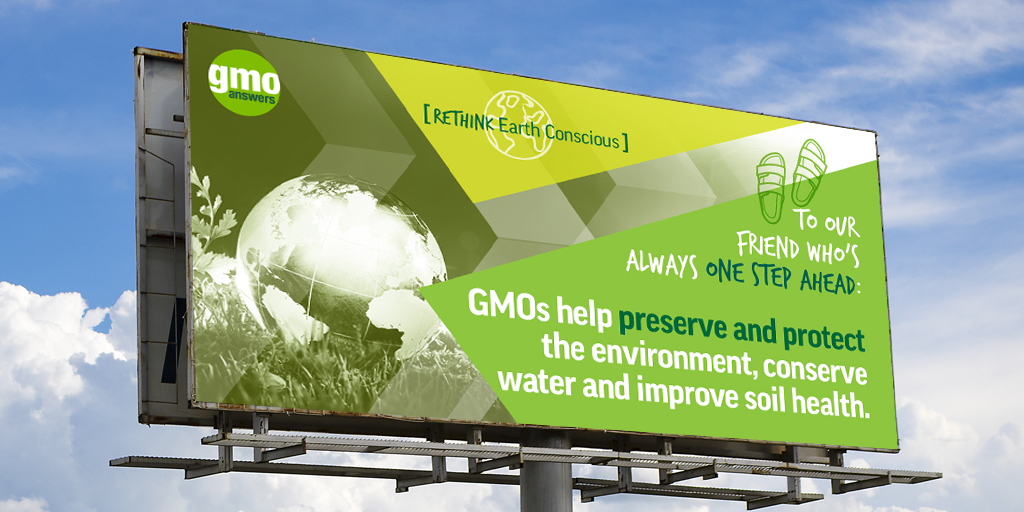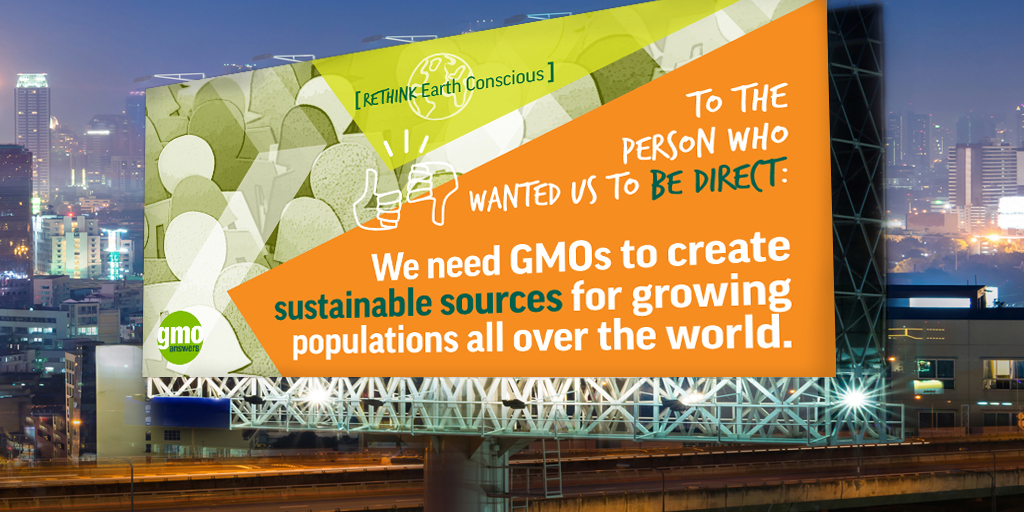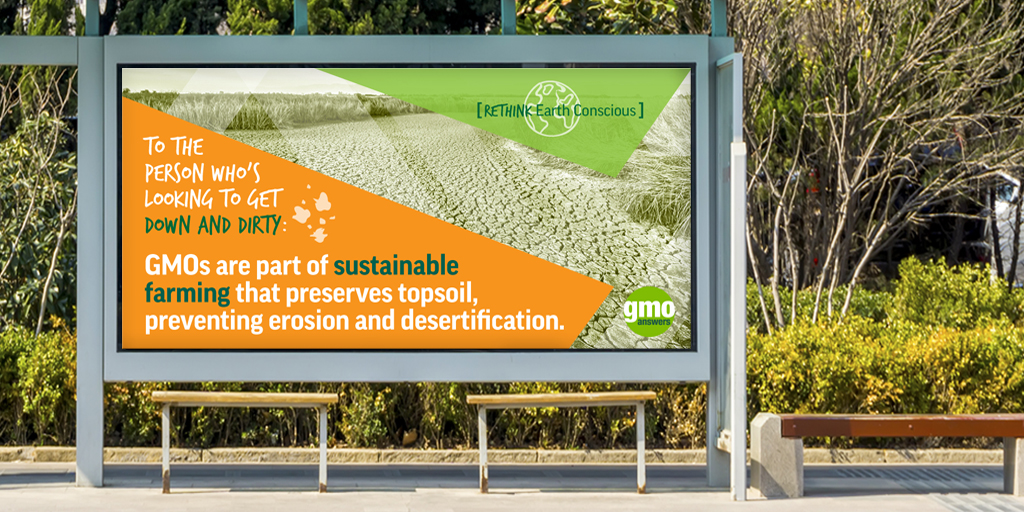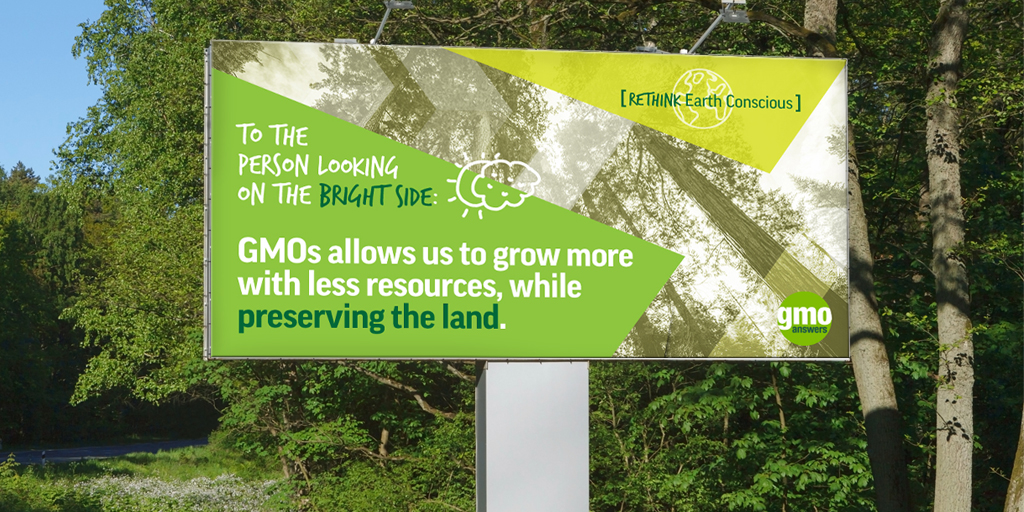Should GMOs Make You Rethink ‘Earth Conscious’ Foods? Yes.
Sustainability is a major food trend this year – it continues to enter our conversations, whether we’re talking about reducing food waste and plastic use or producing food in more earth conscious ways. People are asking more questions than ever before about the origins of food and its impact – not only on themselves but also on the world around them.
Yet, the environmental benefits of GMOs and how they check many boxes for sustainability has largely been missing from these conversations. Contrary to misconceptions, GMOs DO help protect the environment in more ways than most think.
To help spread the word about the environmental benefits of GMOs and encourage people to #RethinkEarthConscious foods, we compiled a few big (well, billboard size) shareable suggestions based on common environmental questions asked on our site.
1. How are GMOs impacting the environment?

Despite widespread misconception, GMOs positively impact the environment. In fact, they are one of the best tools farmers have to protect our water, air, land and even limit the impact of climate change. GMOs are one of several plant-breeding technologies that allow farmers to grow more food using fewer resources, like pesticides and land. In the last 20 years, GMOs have reduced pesticide applications by more than 8% and increased crop yields by 22%.
GMOs also have other environmental benefits, such as reducing food waste, improving our soil, air and water quality.
2. What’s the deal with food waste and needing GMOs to help feed the world?

Producing enough food to meet the needs of a growing global population, while limiting our impact on the environment, is undoubtedly one of the biggest challenges of our time.
Globally, around one-third of food produced is lost or wasted (approximately 2.9 trillion pounds per year), according to the United Nations. Food losses affects the environment, food security, food quality and safety, and economic development.
GMOs help farmers minimize these losses.
In developing countries, where resources to effectively control weeds and insects are often limited, GM traits, such as insect resistance and herbicide tolerance, have increased yield substantially. GM traits can also help farmers produce crops that are more resistant to extreme weather conditions.
3. Do GMOs contaminate the soil?

Genetically modified crops break down exactly the same way as non-GMO crops and actually improve soil health. Again, over the last 20 years GMOs have reduced pesticides applications by 8% and herbicide-tolerant GMO crops enable farmers to till — or turn over and break up the soil — less often. This has increased nutrient-rich organic matter up to 1,800 pounds per acre, per year. Less tilling also means increased soil moisture, reduced greenhouse gas emissions and soil erosion.
4. What is the most beneficial impact of GMOs?

Put simply, GMOs have given farmers the ability to do more with less. They are also helping us solve major food challenges like citrus-greening disease, which is threatening an estimated 80% Florida’s citrus groves, and banana wilt virus in East Africa. Solving these issues on the farms where they start means local farmers can continue to make a living and provide enough orange juice and bananas to fill breakfast tables across the world.
So, the next time you’re engaging in conversations about sustainable foods – remember that GMOs are one tool in the modern farmer’s tool box that can benefit us all and the environment in many ways.



